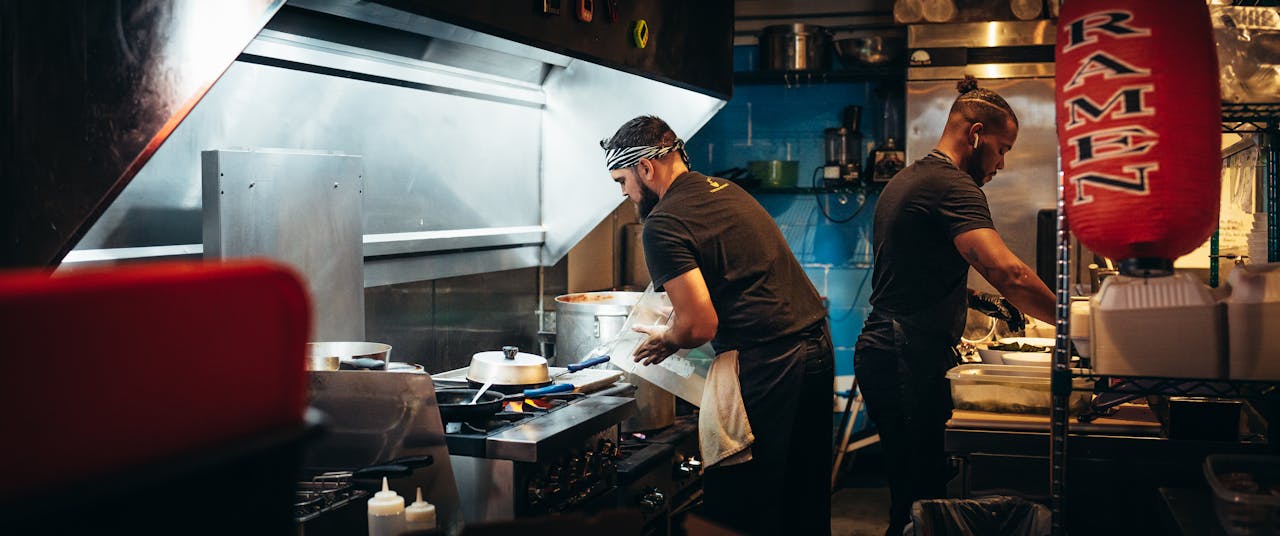
Maintaining a clean, effective, and legal operation depends on your industrial kitchen passing a safety inspection. Safety inspections are meant to find any risks, confirm adherence to health standards, and guarantee that every piece of equipment is in good running order. Ignoring an inspection could result in expensive penalties, and company interruptions, and can result in closure. Before the examination starts, you really need to clean your kitchen completely to prevent unpleasant results. This article will address important areas to concentrate on, therefore enabling you to establish a safe and compliant workplace that passes inspection with great success.
1. Maintain Cleanliness and Sanitation Standards
Keeping up with thorough tidiness and sterilization norms is one of the main necessities for passing a well-being examination. To stay away from contamination, first ensure all surfaces — ledges, flooring, walls — are regularly cleaned and disinfected. High-touch surfaces like door knobs, switches, and equipment controls should especially be cleaned as they are frequently disregarded yet can contain dangerous pathogens. Establish a daily, weekly, and monthly regimen for cleaning that guarantees nothing is overlooked. Make sure every staff member also receives instruction on appropriate sanitation standards, including hand washing methods and adequate cleaning product use. Giving cleanliness a priority helps you greatly lower your chance of failing an inspection because of sanitation issues.
2. Ensure Equipment is in Proper Working Order
The correct maintenance and operation of every kitchen equipment is another crucial element for a safety inspection passing. From ovens and stoves to refrigerators and freezers, inspectors will make sure every device meets safety criteria and runs effectively. Plan maintenance visits for every piece of equipment and take quick care of any problems to avoid malfunctions during the inspection. Verify that every safety element—including exhaust hoods, emergency shut-offs, and fire suppression systems—is operating as it should and has been checked within the prescribed period. Well-kept tools not only guarantee a flawless inspection but also help avoid mishaps and raise general kitchen efficiency.
3. Implement Food Safety Protocols
Any kitchen inspection starts with food safety. Hence, it is essential to follow and apply rigorous food safety guidelines. Starting with making sure all food is kept at the right temperature and separating raw and cooked products to prevent cross-contamination; following the “first in, first out” (FIFO), label and date all food products to guarantee freshness and appropriate rotation. Teach your employees correct thawing, cooking, and chilling techniques, and how to prevent common foodborne infections. To show officials if asked, also meticulously document food safety procedures including cleaning plans and temperature logs. Following these guidelines will not only help you pass a test but also protect your clients from foodborne diseases.
4. Working with Flooring Professionals
Making sure your industrial kitchen satisfies safety inspection criteria depends on working with flooring experts. Specialized experience in choosing and installing flooring that follows safety guidelines and resists the rigorous climate of a commercial kitchen comes from industrial floor coating contractors. Crucially for passing inspections, their knowledge guides the selection of materials that stop slides and are simple to clean. Engaging these experts guarantees that your kitchen flooring not only meets safety criteria but also maintains hygienic standards and durability. Their importance is in building a functioning, safe cooking environment that is compliant with all the rules.
5. Train and Educate Your Staff
Your team is important in ensuring your kitchen passes a safety inspection; hence, appropriate training and instruction are vital. Make sure every staff member values kitchen safety, sanitation practices, and food handling techniques via thorough instruction on these subjects. Safety exercises and frequent refresher training help to keep everyone current on the most recent guidelines and procedures. Encourage honest communication among staff members so they can document any safety issues or infractions free from fear of consequences. Encouragement of safety and responsibility will help you to guarantee that your kitchen runs as it should always be ready for inspection.
Conclusion
Operating a profitable industrial kitchen, appropriate training, and following rules, all depend on passing a safety inspection. Maintaining cleanliness and sanitation standards, making sure equipment is in good operating condition, and following rigorous food safety procedures can help you establish safe and compliant surroundings. Excellent paperwork and staff training show your dedication to safety and compliance and help to ensure a seamless inspection process. Following these rules will help you to boldly clean your kitchen for an inspection, thereby guaranteeing that it satisfies all required criteria and keeps running effectively and securely.


